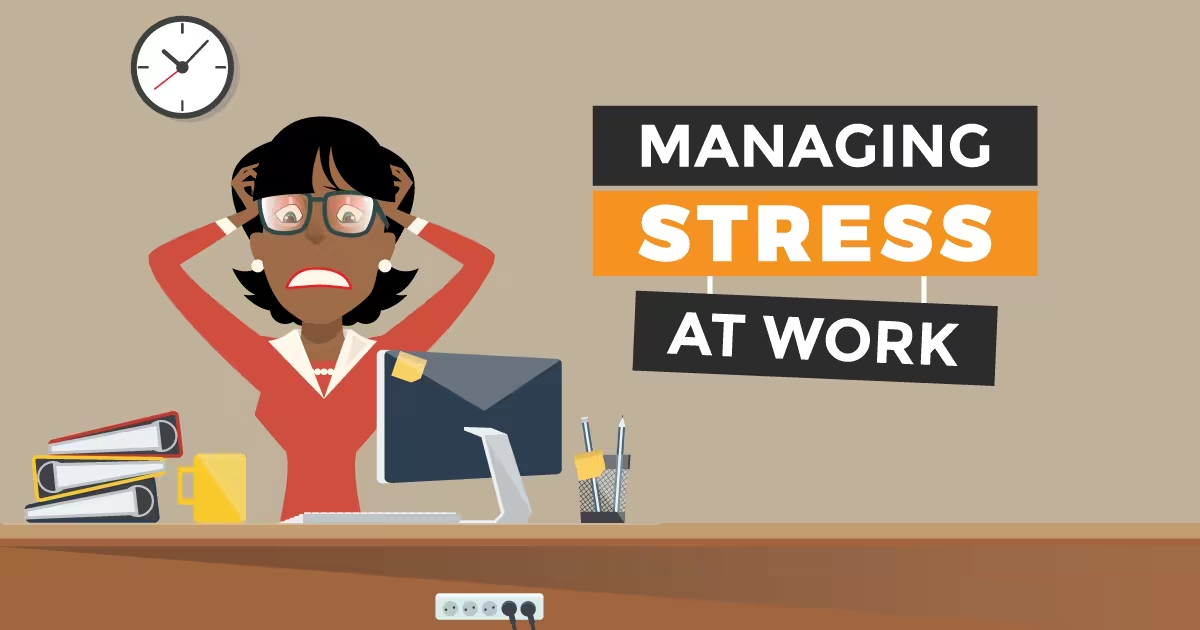Stress is defined by The Medical Encyclopaedia as feelings of emotional or physical tension. It can come from any event or thought that makes you feel frustrated, angry, or nervous. A workplace is, unfortunately, a place that has so many external stimuli that it might end up being a lead cause for stress. Long hours, tight deadlines, and ever-increasing demands can leave you feeling worried, drained, and overwhelmed. And when stress exceeds your ability to cope, it stops being helpful and starts causing damage to your mind and body—as well as to your job satisfaction.
Workplace stress then is the harmful physical and emotional responses that can happen when there is a conflict between job demands on the employee and the amount of control an employee has over meeting these demands. Some of the indicators that you may be stressed at work include feeling anxious, irritable, or depressed, loss of interest in work, problems sleeping, trouble concentrating, and headaches.
Some of the least stressful careers have been listed as hairdressing, pharmacy technician and university professors. The unfortunate reality is that in the modern-day workplace, stress is relatively hard to avoid. A more realistic choice would be to simply adopt more effective strategies to reduce stress. Here are some stress management techniques to try.
Tip 1: Reaching out
Talking about what you are facing helps take the feelings out from inside of yourself, it helps you to process them. One cited analogy is that of a pressure cooker: If you don’t open a lid periodically, the steam can build up and cause you to feel even more stressed. If you let it out, it can help you process whatever it is you’re worried about. The act of talking it out and getting support and sympathy—especially face-to-face—can be a highly effective way of blowing off steam and regaining your sense of calm. The other party doesn’t have to “fix” your problems; they just need to be a good listener.
Examples of who to talk to can be, your coworkers. This group of people are probably the best in terms of relating to what you are going through as they are also in the same environment. During breaks for example, instead of directing your attention to your smartphone, try engaging your colleagues.
Strong familial support also goes a long way in reducing workplace stress. Sometimes one does not have the necessary connections with workmates that allow them to divulge their feelings.
Related: Feeling Marginalized in the Office? Here's How to Handle It
Tip 2: Exercising and Nutrition
It’s easy to neglect your health in pursuit of the next deadline. We forget that health has a strong correlation with nutrition and exercise. A healthy lifestyle means that one will be stronger and more resilient to stress. Taking care of yourself doesn’t require a total lifestyle overhaul. Small steps can ultimately impact your mood, increase your energy, and make you feel like you can handle anything. It is recommended that one gets at least 30 minutes of exercises per diem and it doesn’t have to be intense workouts. Acceptable form of exercise also include walking and cycling.
The food one eats plays a very vital part of stress management. Eating controlled portions of food regularly can maintain your energy levels and focus- as the saying goes, a hungry man is an angry man. Whilst food can be a great aid to fighting stress, it should be done in moderation as eating too much can make you non-productive and increase pressure on deadlines.
Tip 3. Church and State
Taking the office home is something that a lot of professionals do. That means that one is always in a constant alert state with no time to wind down. Taking work home means that that home life and relationships suffer as they become potential targets to lash out at. It is very advisable to confine work to particular times and locations, in summary, keep work at the office unless it’s very urgent.
Tip 3. Adequate Sleep
Sleep is a very integral of our lives but for the most part, we try to cut down on sleep hours to stay ahead of the work curve. The saying goes that money never sleeps and we end up believing that trading sleep for a bit of extra work is a sign of productivity. The science, however, shows that as little as an hour or two of sleep loss contributed to a 19% drop in productivity at work. Getting adequate rest, especially when you have hit a brick wall enables you to tackle the days stress better.
Work stress can be unavoidable no doubt, but ultimately learning to manage the stress can go a long way in keeping our health and sanity in check in the long run.

